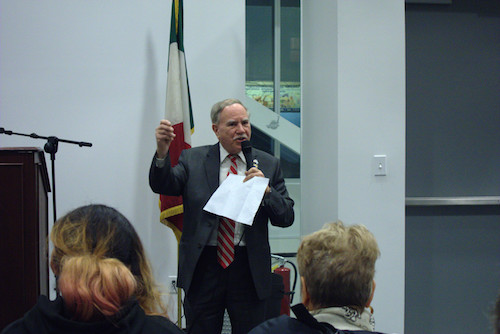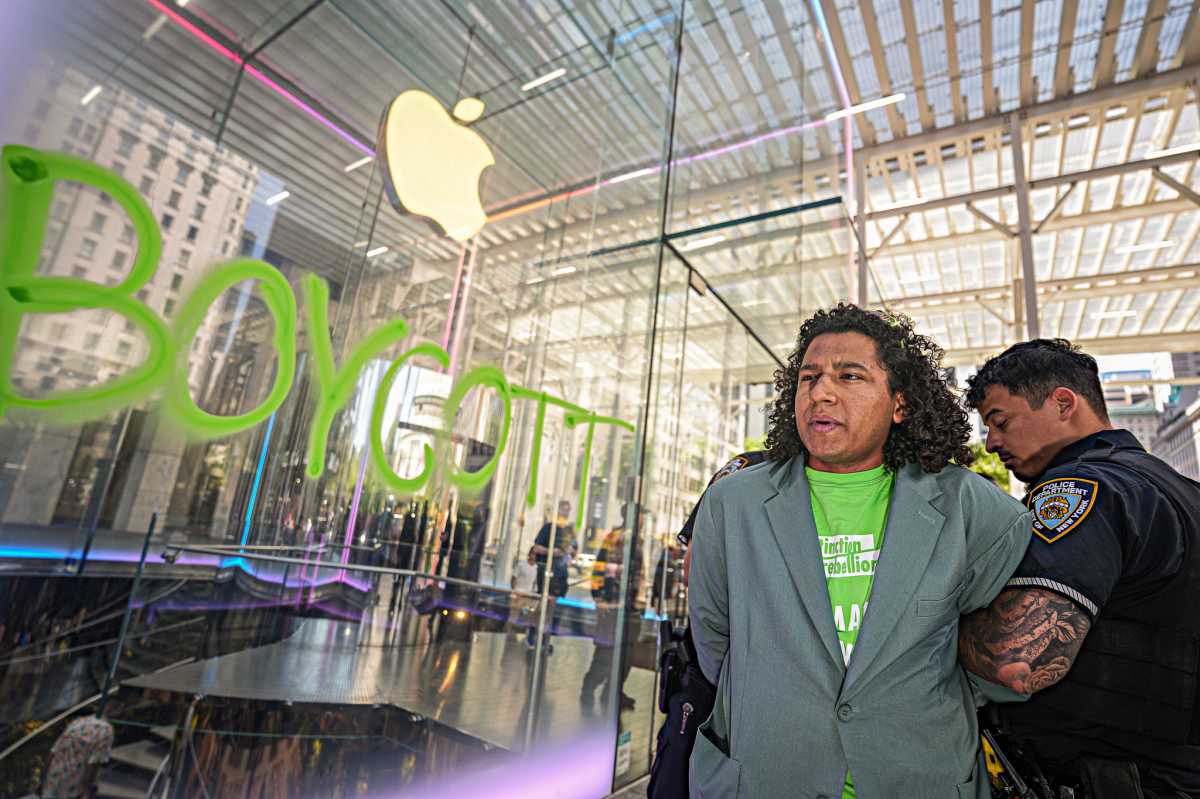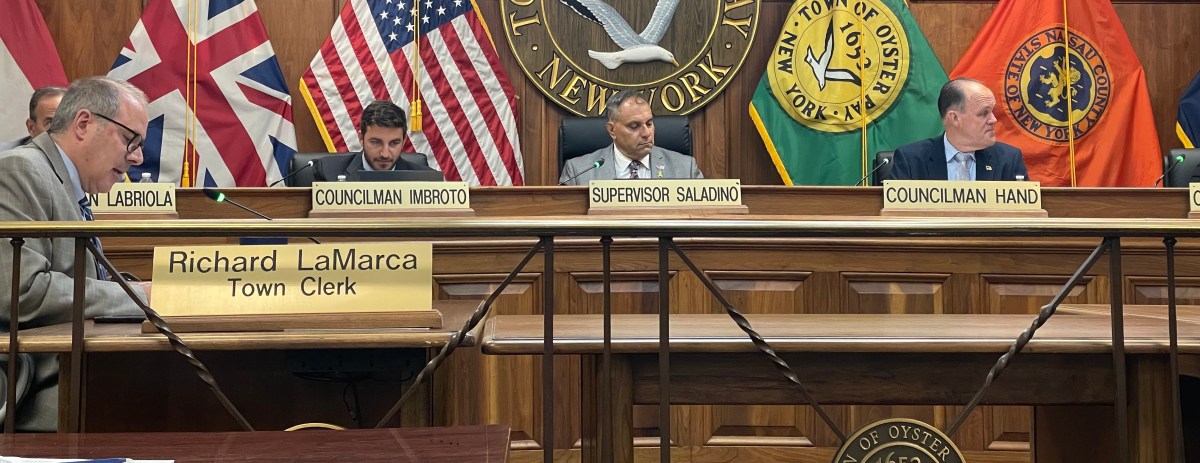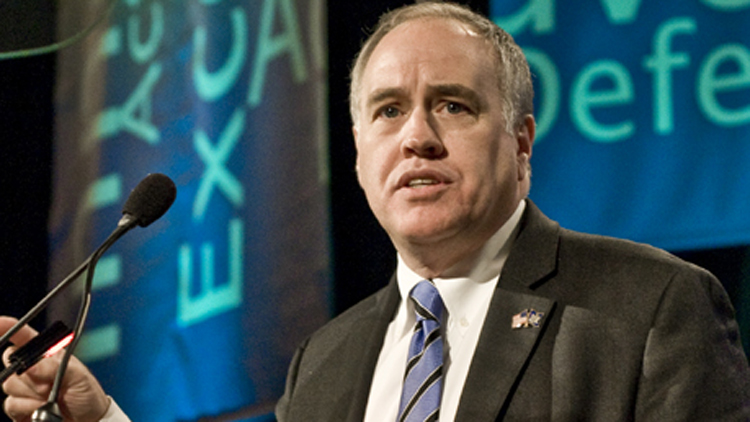Assembly Members William Colton (D-Bath Beach, Bensonhurst) and Pamela Harris (D-Coney Island, Bay Ridge, Dyker Heights), and a host of environmental experts and organizers gathered with local residents last night at the Il Centro Italian American Cultural Center, 8711 18th Avenue, to discuss ways to address the issue of climate change, from individual efforts to conserving energy to a statewide switch to renewable energy.
Colton introduced his energy bill, which would require the state to convert to a 100 percent clean energy system by 2030. The bill would push the state energy planning board to create a clear plan, in five-year increments, detailing necessary steps towards full reliance on renewable energy.
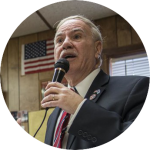
Colton and Harris underlined the urgency of efforts to deal with climate change, referencing recent Hurricanes Harvey and Maria, ongoing wildfires in California, and 2012’s Superstorm Sandy, as indicators of environmental change.
“These are things that are happening, and they’re becoming more and more difficult to ignore. That’s one of the reasons that we really need to come up a plan,” said Colton. “If we don’t start doing something very quickly, we are going to have devastation maybe in the next decade or two decades. And we’ve got to do this in the next ten years, that’s the pivotal period of time.”
“If we don’t start taking environmental conservation and protection seriously, [extreme weather events] will only continue to get stronger,” said Harris, referencing the damage from Superstorm Sandy in her own district. “We simply can’t afford to ignore the facts.”

The group of experts and activists argued that above all, it was crucial to move away from reliance on fossil fuels in New York State.
“When you’re in a hole, you have to stop digging. It’s nuts that while we’re talking about moving to 100 percent renew energy, we’re still considering building new fossil fuel projects,” said Alex Beauchamp, the Northeast Region Director at Food & Water Watch, a D.C-based advocacy organization. “Even in a state that’s banned fracking, we find ourselves pulled deeper and deeper into a ruinous reliance on fossil fuels.”
In December 2014, Governor Cuomo’s administration announced that it would ban hydraulic fracking, making New York the second state to ban hydraulic fracking. The group of speakers supported the ban, citing large-scale grassroots organization as a key factor, but argued that planned pipelines transporting natural gasses through New York still put the state at risk.
The speakers argued that a switch to renewable energy would slow climate change, reduce health risks, lower energy bills, and create new jobs in a fresh industry.
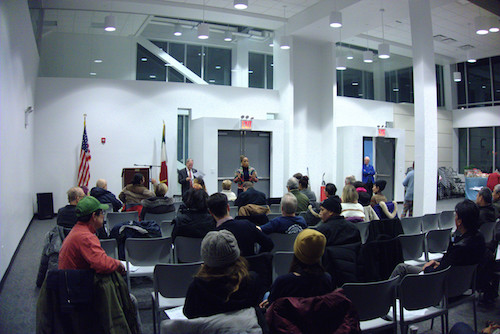
Mark Dunlea, Chairperson of the Green Education and Legal Fund (GELF), said that a study by Stanford and Cornell professors found that not only was it technologically feasible to switch to 100 percent clean energy by 2030, but that the state could create 4.5 million jobs (280,000 40-year jobs) in the process.
“The strange thing is, when we’re trying to go to 100 percent renewable energy, we’re actually trying to improve quality of life,” said Dunlea.
The group referenced off and onshore wind farms and solar power as potential forms of renewable energy, and pointed to more efficient ways of using the energy itself. Colton argued that the country should stop subsidizing oil and gas industries and provide incentives to companies and individuals who would commit to renewable energy methods.
“Water, air, these are things we have in this country and every country, and it reduces our dependence on a product such as oil,” said Colton. “Each community has to decide for itself what are its priorities in terms of being able to convert to renewable sources.”
Activists added that in addition to switching energy sources, it was important for individual New Yorkers to reduce their own energy use as well. Community activist Ida Sanoff suggested keeping the fridge at 37 degrees and unplugging “vampire appliances”—which use energy even when turned off—as examples of energy conservation.
“Clean energy is essential, but resources are not limitless, so we need to reduce what we use,” said Sanoff, citing reports that the United States could save 1.2 trillion dollars by sealing drafts and using energy-efficient appliances. “Conservation is not a dirty word, it just requires using your brain and doing lots of little things.”


